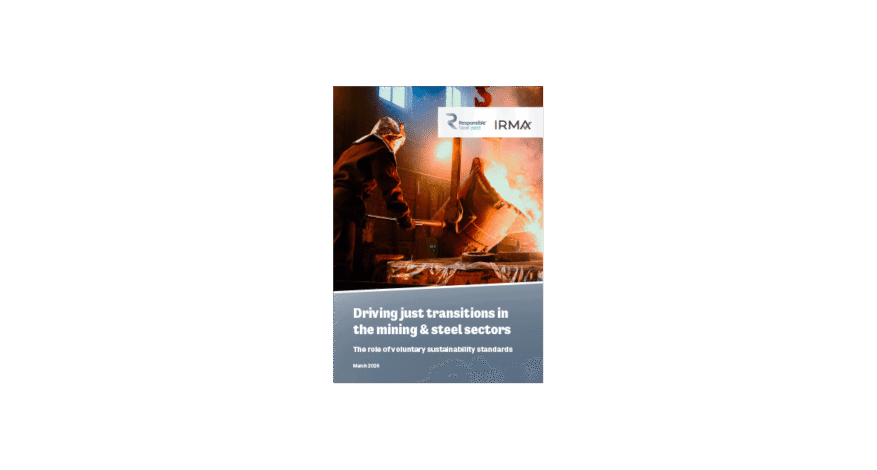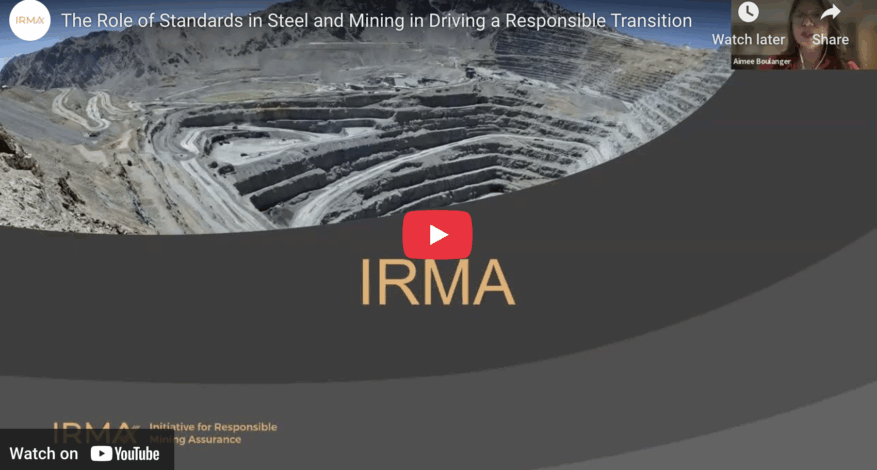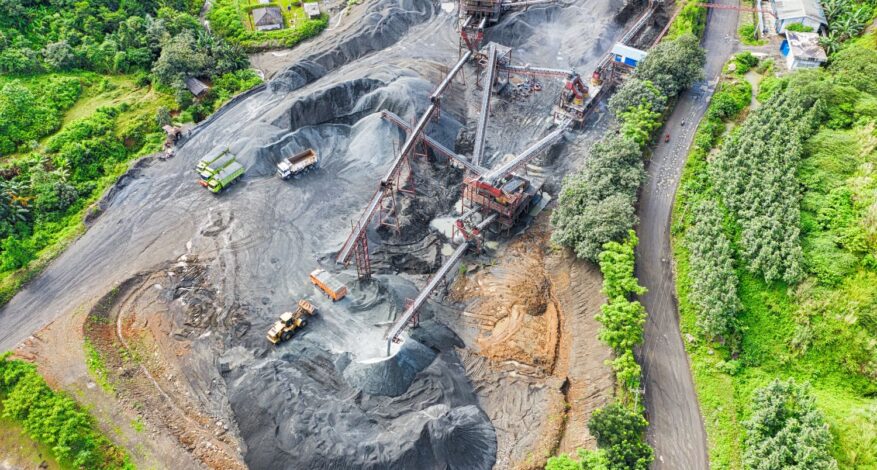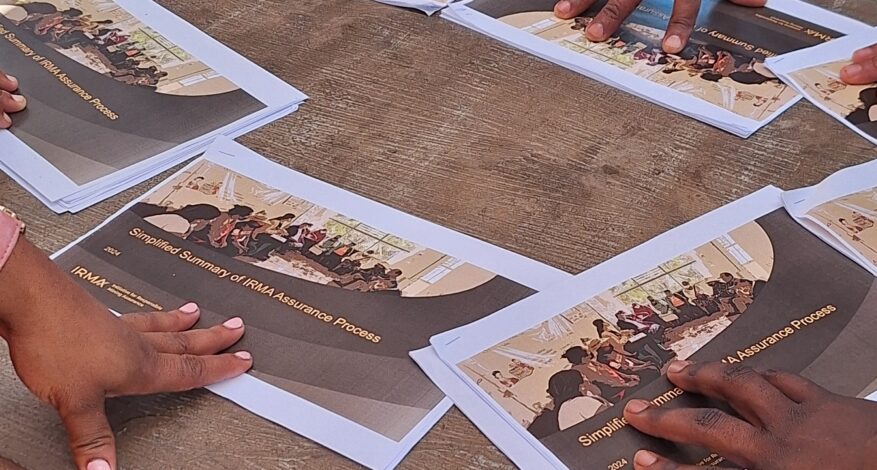New report outlines key considerations for a just transition for mining and steel
Today, ResponsibleSteel and the Initiative for Responsible Mining Assurance (IRMA) published a landmark report, Driving just transitions in the mining & steel sectors: The role of voluntary sustainability standards, outlining how voluntary sustainability standards (VSSs) can help deliver fair and inclusive transitions as heavy industries globally move to decarbonise. It is the first report of its kind, jointly authored by VSSs from the mining and steel sectors.
Developed by ResponsibleSteel and IRMA, the report demonstrates how collaboration across the supply chain provides the necessary understanding of the challenges and opportunities faced by both sectors to achieve a truly just transition for mining and steel. ‘Driving just transitions in the mining & steel sectors: The role of voluntary sustainability standards’ introduces nine key principles and five recommendations to help VSSs integrate just transition into their frameworks.
The report also reveals a significant gap—despite commitment at both government and corporate levels to just transition principles, implementation remains slow and inconsistent. With mining responsible for up to 10% of global energy-related emissions and steel also accounting for around 10%, accelerating decarbonisation in these sectors is critical. But without deliberate action, workers and communities most affected by these transitions risk being left behind.
ResponsibleSteel CEO, Annie Heaton, commented, “Decarbonisation is one of the most pressing global issues we face today. But if we ignore its social impacts, we risk serious unintended consequences. With around six million people employed in steel and another 20 million in mining—plus millions more in supply chains and communities that depend on these industries—industry must work together with workers, communities and governments to consider how to plan the transition to benefit people as well as the planet.”
Stakeholders involved in the project—including industry leaders, supply chain actors, academia, governments, trade unions, civil society organisations, local communities, and Indigenous groups—emphasised that these transitions must not only be fast, but fair, putting justice at the heart of industrial change.
IRMA Executive Director Aimee Boulanger observed, “This research shows that for voluntary standards to succeed, they must be structured to improve justice and inclusivity as they decarbonise and protect the environment.”
Key findings from the report included:
- Justice at the centre: Stakeholders recognised the urgent need to decarbonise but stressed that justice must guide transition planning.
- Inclusive process: The specific definition of “Just Transition” is highly contested, with varying interpretations. Engaging stakeholders is key to effectively defining the transition scope, identifying social impacts, and shaping mitigation actions.
- Restorative justice challenges: Addressing restorative justice remains complex, requiring deeper collaboration among governments, companies, VSSs, and historically impacted communities.
- Flexibility: Just transitions will differ across contexts and sectors. Principles must remain adaptable to be effective.
Funded by the ISEAL Innovations Fund with support from the Swiss State Secretariat for Economic Affairs (SECO), the report draws on international principles from the International Labour Organisation (ILO) and the UN Working Group on Human Rights, academic justice theory, interviews with 35 stakeholders, and two in-person workshops held in Brussels and Johannesburg.
This work highlights the unique role VSSs can play in providing practical frameworks for implementation, accountability, and verification, setting a clear reference point for steel and mining companies to plan transitions in a way that is equitable and fair. Both ResponsibleSteel and IRMA will continue to engage with stakeholders to discuss the best way to integrate just transition principles into their respective systems.
Read the full report here.
For More Information
- Savannah Hayes, Communications Manager, ResponsibleSteel
communications@responsiblesteel.org│+44 7588 785909 - Initiative for Responsible Mining Assurance (IRMA)
info@responsiblemining.net
About ResponsibleSteel
ResponsibleSteel is a global multi-stakeholder standards and certification initiative for the steel industry, committed to being a driving force in the socially and environmentally responsible production of net-zero steel. The ResponsibleSteel International Production Standard is designed to support the responsible sourcing and production of steel through an international system of certification and classification. For more information about ResponsibleSteel, please visit: www.responsiblesteel.org/
About the Initiative for Responsible Mining Assurance (IRMA)
IRMA is a nonprofit organisation working to protect people and the environment directly affected by mining by creating financial value for industrial-scale mining operations independently assessed against IRMA’s best practice Standard for Responsible Mining. For more information, visit: www.responsiblemining.net




